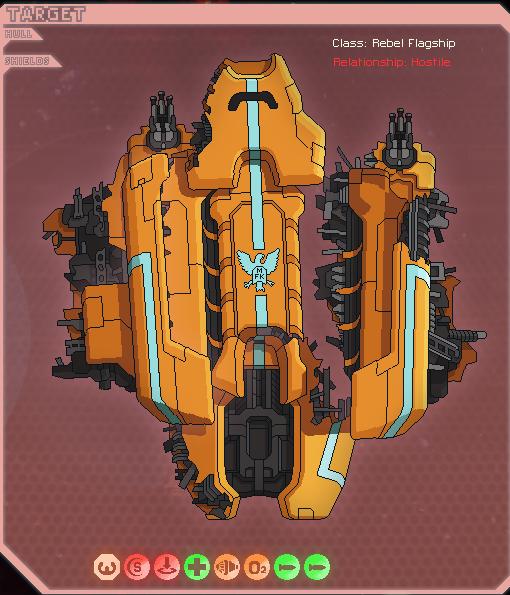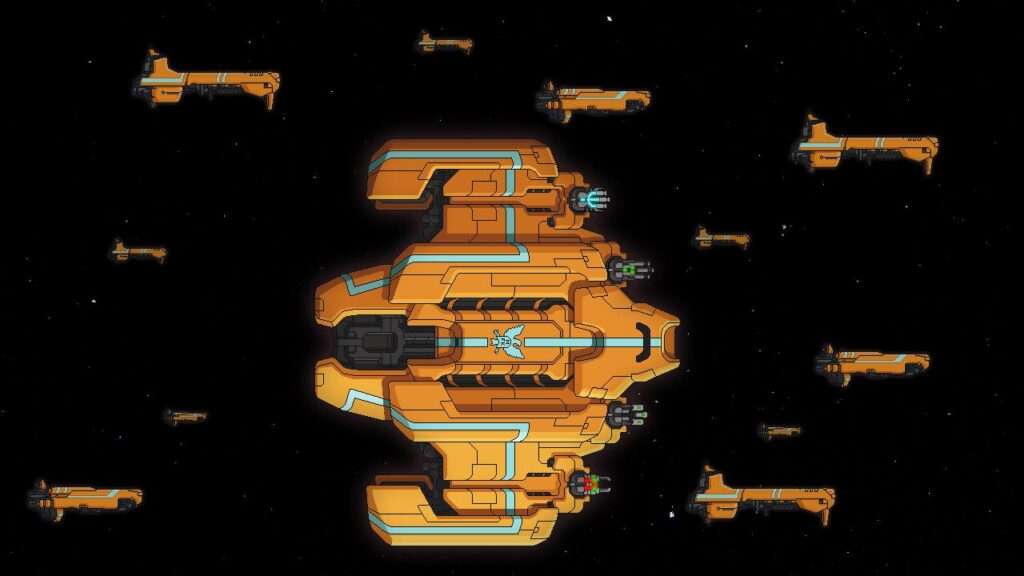

While I praised the randomness that can occasionally reward you, there is no real downside to those little quest lines, aside from missing the ship you wanted on that particular run. Which leads me to what I feel is the most frustrating thing about FTL: it’s unfairly difficult. When it comes to the final flagship, most unique play styles seem doomed to failure. Sacking enemy ships and gaining more reward as a result. While making a run based on a combat focused crew and high level teleporter is really fun. Chances are you’ll eventually find a shop selling the crew or system you’re looking for, but then again you can spend half an hour playing a doomed run too.

#Ftl faster than light rebel flagship generator
While it can feel like you’re at the mercy of the random number generator at times, your ability to gain scrap generally means you can always customise the ship in somewhat a way you want. My love for the game comes from just how different each and every run can be. Its the kind of game where “just one more run” becomes a half a dozen and you end up losing half of your evening as a result. Much of the charm of these little moments comes from the thirst it inspires to just keep playing the game over and over, such is the nature of a rogue like. Giving you more options right off the bat means you have further opportunity to try entirely new strategies when running through. That is of course if you do stumble upon these and don’t just bang your head against the game over and over while reading a wiki. It’s a great little surprise to find yourself rewarded with a little chunk of insight into these aliens, and one of their ships that is added to the hanger. The roguelike nature of the game means that player can bump against these encounters over and over without realising what they are, until they happen to do things in the correct order. During which the player must meet a certain number of criteria such as having a certain type of crew member, as system upgraded to a particular level or simply sparing them when they try to surrender. There are certain events that you encounter and seem innocuous at first, but in fact these are multi stage, optional quest lines. The random nature of encounters means that new information is doled out very slowly. It allows you to get a better idea of what these peoples are about without overtly telling you. You learn a little snippet of information thanks to context clues and situations that the flavour text for each combat and scenario provide. Your introduction to the alien races and interplay between them comes through the game’s randomly generated encounters, which can be both peaceful or violent. When you play the game for the first time, you’re given a single human made ship, manned by an all human crew. The lore is bare bones enough that’s its enticing to learn more but also allows you to just fill in most of the gaps yourself. All of the game’s lore and world building feel like they come as a consequence of the game mechanics the developers implemented. It doesn’t front load its story at all, in fact you have to piece it together yourself.

The text box at the beginning of the game is the only indication of its story FTL gives you. You start in one of a number of preset ships and as you progress you collect scrap, new crew, new weapons and crew systems, you build yourself up enough to take down the Rebel Flasgship and destabilise them enough to ensure victory for the federation.

The game puts you in control of a federation star cruiser, on a dire mission to cross a sector of space while a rebel fleet is in hot pursuit. Instead I found myself loading up Subset’s first game and losing a couple dozen more hours to FTL: Faster Than Light.įTL is a top down, real time strategy roguelike. But rather than just going out and buying the game I liked the look of, like a normal person would. It had an Advance Wars vibe to it that really grabbed my interest. A game by the name of Into the Breach caught my eye recently, a tactical role playing game from developers Subset Games.


 0 kommentar(er)
0 kommentar(er)
